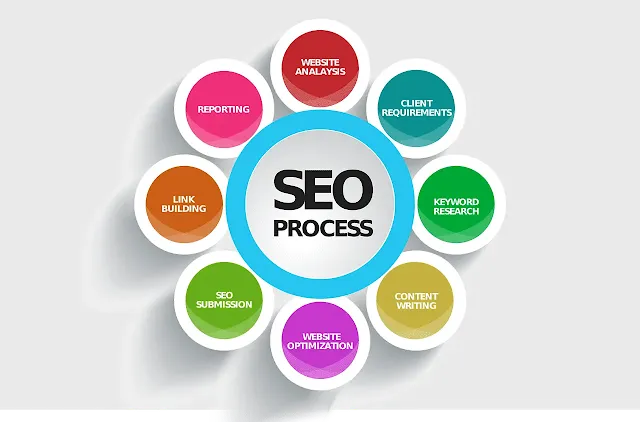In today's fast-paced digital world, having a website is as important as having a physical storefront on a busy street. It's your chance to showcase your items or services to the entire world, enticing potential clients from all over. However, for many small businesses, the expense of creating and maintaining a website might be unaffordable. That is where affordable and cheap website hosting comes into play.
Understanding Affordable Website Hosting
The Advantages of Affordable Hosting
One of the key advantages of affordable website hosting is its cost-effectiveness. By using these services, small businesses can build an internet presence without having to invest a large sum of money upfront. Furthermore, most low-cost hosting providers provide user-friendly interfaces and customer support to help businesses traverse the process smoothly.Selecting the Right Hosting Provider
When choosing a hosting service, you must evaluate elements such as uptime reliability, customer support quality, and scalability possibilities. Reading reviews and comparing providers might help you make a smart decision.
Thus, cheap and affordable website hosting enables small enterprises to thrive in the digital age while remaining financially viable. By utilizing these services, businesses can reach a larger audience and compete more successfully in today's competitive market.
Importance of Affordable Website Hosting
Affordable website hosting, commonly referred to as small business website hosting, is critical for small businesses that want to succeed in the digital age. Here's what makes it really a game changer.
Reducing Costs and Enhancing Liberty
Imagine this, by investing in small company website hosting, businesses can reduce their operational costs and gain flexibility. Instead of spending a lot of money on pricey hosting services, companies may use those cash toward other important aspects of their organization, such as marketing tactics or team development. It's like discovering a wealth of resources without breaking a sweat!
Budget-Friendly Professionalism
To create an impact in the online world, every business requires a polished, professional website. However, the best part is that they don't have to empty their pockets to buy one. They may create and maintain a high-quality website without breaking the bank thanks to low-cost hosting alternatives. It's like having a prime storefront on Main Street without the exorbitant rent.
Smooth Sailing for Your Website
What is the significance for having a website that constantly crashes or loads slowly? That's where dependable hosting steps in to save the day. Small business website hosting ensures that your site functions smoothly, with minimal downtime and lightning-fast speeds. Because, let's face it, no one like waiting for a website to load, especially clients or those pesky search engines.
Affordable website hosting, often known as small business website hosting, is more than just fancy technical jargon. It's the secret sauce that allows small businesses to navigate the online world with ease and elegance.
Essential Factors for Choosing Web Hosting
When it comes to small company website hosting, choosing the right provider can feel like an exciting journey through a maze. But do not worry, daring entrepreneur! Here are a few important checkpoints to make your journey easier and more rewarding:-
- Price. Let's begin with the golden rule: your budget. Seek out a hosting plan that works well inside your budget. Fortunately, there is a treasure trove of low-cost solutions waiting to be discovered, providing excellent value for small enterprises such as yours.
- Reliability. Building on Solid Ground. Next, establish oneself as dependable. You require a service with a great reputation for keeping websites running smoothly. After all, downtime may sink your ship, costing you clients and damaging your brand. So, take sail with a service known for steadfast dependability.
- Scalability. Charting Your Course for Growth. Hello, matey! Plan for future expansion. Make sure your selected provider allows for scalability, so your website may grow alongside your business. You want a hosting plan that can withstand the storm, supporting more traffic and extended features as your company expands into new markets.
- Features. Crafting Your Perfect Ship. Last but not least, customize your watercraft with the features you require. Are you in need of a reliable e-commerce platform? What about stronger security precautions, such as SSL certificates? Plan your course properly, and make sure your chosen provider has all of the bells and whistles needed to make your website seaworthy.
By following these guidelines, you'll be able to gracefully navigate the maze of small business website hosting providers, opening the road for digital success.
Hosting Plans Comparison
Let's make things easier by comparing pricing and features:
| Hosting Provider | Price (Starting From) | Features |
|---|---|---|
| Bluehost | $3.95/month | Free domain Free CDN Enabled Unmetered bandwidth Free SSL certificate |
| HostGator | $3.75/month | Free website builder Unmetered bandwidth 24/7 support |
| Siteground | $3.99/month | Free SSL certificate Free email Daily backups 24/7 support |
| DreamHost | $2.95/month | Free domain Unlimited Traffic SSD storage |
| A2 Hosting | $2.99/month | Free SSL certificate Unlimited email accounts Free Website Builder 24/7 support |
Website Optimization Tips for Small Businesses
Improving the functionality and user experience of your small business website entails more than simply choosing a cheap hosting provider. Here are some specific strategies you may take to improve your web presence:
 |
| Image by needpix.com |
- Optimize images. Compress photos to reduce file size and ensure faster website loading times. This optimization strategy not only improves user experience but also increases website performance, making it more appealing to visitors. Tools like TinyPNG offer efficient compression algorithms that maintain image quality while reducing file sizes.
- Use a content delivery network (CDN). Use a Content Delivery Network (CDN) to quickly distribute your website's content to users worldwide. Using a CDN can drastically reduce latency and improve the entire browsing experience for your audience, regardless of location.
- Implement caching mechanisms. Use caching methods to save static files locally on users' devices or proxy servers. This method reduces server burden while increasing content delivery speed, resulting in faster page load times and more customer satisfaction. To explore more about caching for WordPress, visit wp-rocket.me.
- Keep the software up to date. Update your website's software on a regular basis, including content management systems (CMS) and plugins. Staying up to date with the newest versions ensures maximum security and performance, protecting your website from vulnerabilities and potential threats.
- Monitor performance. Use tools such as Google Analytics to regularly check your website's performance. Analyzing key data such as page load times, bounce rates, and user engagement allows you to find areas for improvement and make informed decisions about how to further optimize your website.
By incorporating these strategies into your small business website hosting plan, you can deliver a seamless and engaging online experience for your audience, resulting in increased business success.
Final Words
As we conclude our exploration, it is critical to emphasize that affordable website hosting is more than simply a useful tool; it is the foundation upon which small businesses build their online kingdoms. Small business owners can select the ideal hosting service to meet their specific requirements by carefully analyzing parameters like price, stability, scalability, and features. Whether you choose Bluehost, HostGator, SiteGround, DreamHost, or A2 Hosting, you can be confident that these providers offer cost-effective hosting solutions designed specifically for small businesses like yours. So, with the correct hosting provider and intelligent optimization tactics in place, your small company website isn't just keeping up; it's setting a route for success in the ever-changing digital landscape.
You May Also Like
FAQs
What is the difference between shared hosting and dedicated hosting?
Shared hosting involves sharing server resources with other websites, making it a more affordable option but potentially less scalable. Dedicated hosting provides a dedicated server for a single website, offering more control and performance but at a higher cost.
How does website speed affect SEO and user experience?
Website speed is a crucial factor for SEO ranking and user experience. Search engines like Google consider page load times when ranking websites, and users are more likely to leave a slow-loading site, leading to higher bounce rates and lower conversions.
What is the importance of security in website hosting?
Security is essential for protecting sensitive data and maintaining trust with users. A secure hosting environment prevents unauthorized access, malware infections, and other security threats that can compromise the integrity and reliability of a website.
Can I switch hosting providers if I'm not satisfied with the service?
Yes, most hosting providers allow you to transfer your website to a new host if you're not satisfied with the current service. However, it's essential to research and plan the migration process carefully to minimize downtime and potential data loss.
How do I choose the right hosting plan for my website?
Consider factors such as your budget, website traffic, technical requirements, and scalability needs when choosing a hosting plan. Look for providers that offer reliable uptime, responsive customer support, and features that align with your website goals.
How often should I update my website's content and software?
Regularly updating your website's content keeps it fresh and engaging for visitors, while updating software such as content management systems (CMS) and plugins helps to improve security and performance. Aim to update content and software at least quarterly, if not more frequently.



